There is certainly a mad rush amongst the students to get into the best colleges in the nation and to study the courses which have market value. Everyone wants "settle" in life and what better way to accomplish that than getting an engineering degree. An engineering degree promises to provide a student with latest information regarding technology pertaining to each branch under the stream.
It certainly is a degree which is looked up to. And for many good reasons. Therefore, Oneindia Education presents the list of the most important engineering entrance exams in India. Although, each state has its own entrance exams, the list given here have what most number of students are opting for.
Here it goes...
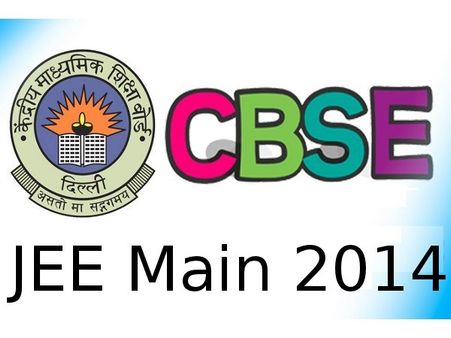
JEE Main (Joint Entrance Examination Main)
Recognised as one of India's most toughest and the most sought after exams for entrance into NITs, Centrally Funded Technical Institutions (CFTIs) and State Funded Technical Institutions (SFTIs). Each year, over 15 lakh students appear for JEE Main.
Exam Pattern:
2 objective type papers, each having Maths, Physics and Chemistry sections.
Eligibility:
For B.Arch and B.Plan: Candidates must have scored 50% of marks in Mathematics subject in class 12 examination, including five subjects.
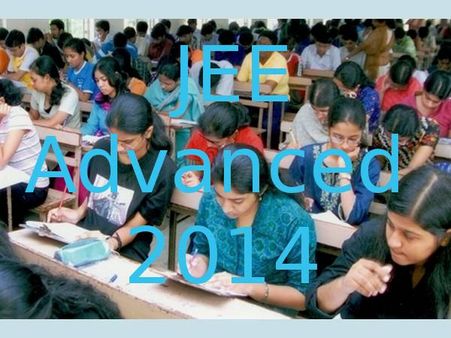
JEE Advanced (Joint Entrance Examination Advanced)
Recognised as one of India's most toughest and the most sought after exams, over 1.5 lakh students who qualify from JEE Main can take up JEE Advanced to gain entrance into the prestigious Indian Institutes of Technology.
Exam pattern:
2 objective type papers, each having Maths, Physics and Chemistry sections.
Eligibility:
10+2, and a minimum of 25 years of age while appearing for the exam.
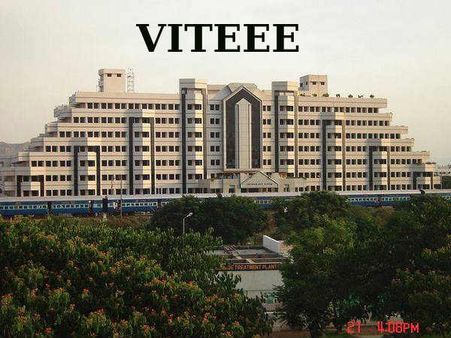
VITEEE (VIT Engineering Entrance Examination)
To get admissions into Vellore Institute of Technology (VIT), students have to take up VITEEE. VITEEE test is conducted for admission to Engineering / Technology programmes in VIT University. It is a computer-based (online) examination.
Exam pattern:
1) Objective exam comprising Physics, Maths, Chemistry and Biology.
2) All the questions are objective type, contains three parts.
3) Part-I - Physics, Part-II - Chemistry, Part-III - Mathematics / Biology.
4) No negative marks for wrong answers.
Eligibility:
1) 10+ 2 or its equivalent with a minimum average of 60% of marks in Physics, Chemistry & Mathematics or Biology (PCM / PCB).
2) The applicant for admission should be a resident /non-resident Indian National.
3) Candidates who have studied Physics, Chemistry and Biology are eligible only for B.Tech. Bioinformatics, Bio-Medical Engineering and Biotechnology programmes.
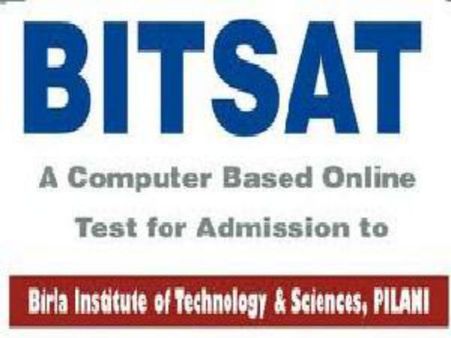
BITSAT (Birla Institute of Technology and Science Aptitude Test)
BITS Pilani Campuses in Pilani, Goa and Hyderabad, organise this online entrance exam. In comparison with JEE, students feel BITSAT is much easier.
Exam pattern:
1) Objective type, multiple-choice questions.
2) Examination will be of 3 hours duration.
3) The test consists of four parts:
- Part I : Physics - 40 Questions
- Part II : Chemistry - 40 Questions
- Part III : (a) English Proficiency - 15 Questions (b) Logical Reasoning - 10 Questions
- Part IV : Mathematics - 45 Questions
- Physics: 35 questions for 105 marks
- Chemistry: 35 Questions for 105 marks
- Mathematics: 35 Questions for 105 marks
- Biology: 35 Questions for 105 marks
- A paper based drawing test
- Computer-based online aesthetic sensitivity test
- Paper 1- Physics and Chemistry.
- Paper 2- Mathematics.
Eligibility:
1) Candidates should have passed the 12th class examination of 10+2 system from a recognised Central or State board or its equivalent with Physics, Chemistry, and Mathematics subjects.
2) Further, the candidate should have obtained a minimum aggregate of 75% marks in Physics, Chemistry and Mathematics subjects in 12th examination, at least 60% marks in each of the Physics, Chemistry, and Mathematics subjects, and should have adequate proficiency in English.
3) Students who are presently studying in BITS at any of its campuses are not eligible to appear in BITSAT conducted for the current year.
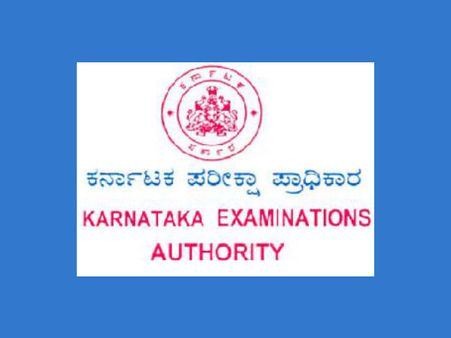
KCET (Karnataka Common Entrance Test)
KCET is a common entrance test organised by the Karnataka University. This exam is taken by the students to gain admissions into Engineering, Dental and Medical courses at graduate level. Students who meet the eligibility criteria issued by Karnataka University can apply online to this entrance exam.
Exam pattern:
1) Exam will be based on four subjects- Mathematics, Physics, Chemistry and Biology.
2) Each subject will be for 60 marks comprising of 60 questions each.
Eligibility:
1) Candidates must have passed 10+2 with Physics and Mathematics as mandatory subjects.
2) Chemistry / Bio-technology / Computer-Science / Electronics / Biology must be the optional subject of the candidate with English as one of the languages of study.
3) Candidates must have 45% marks in aggregate in optional subjects.
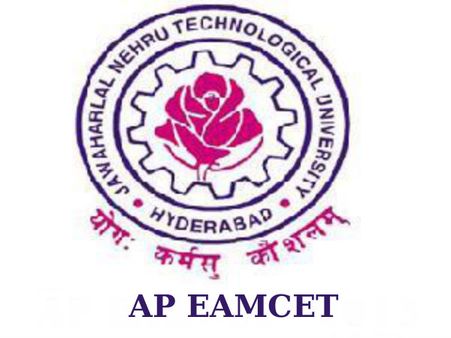
EAMCET (Engineering, Agriculture and Medical Common Entrance Test)
EAMCET entrance exam is conducted by Jawaharlal Nehru Technological University (JNTU) Hyderabad on behalf of APSCHE. Students can gain admissions into various professional courses offered in University/ Private Colleges in the state of Andhra Pradesh. Those who meet the eligibility criteria can apply to this entrance exam online.
Exam pattern:
1) The exam will be based on Mathematics, Chemistry and Physics.
2) There will be 160 questions in total.
3) 80 questions from Mathematics, 40 from Chemistry and 40 from Physics.
4) Each question carries 1 mark.
5) Objective type of paper.
Eligibility:
1) Candidates should be of Indian Nationality or Persons of Indian Origin (PIO) / Overseas Citizen of India (OCI) Card Holders.
2) Candidates should belong to the state of Andhra Pradesh. The candidates should satisfy local / non - local status requirements as laid down in the Andhra Pradesh Education Institutions (Regulations of Admission) order, 1974 as subsequently amended.
3) For Engineering, Bio- Technology, B.Tech (Dairy Technology), B.Tech (Ag. Engineering) and for 50% seats in B. Pharmacy, B.Tech (Food Science and Technology (FST) /B.Sc (Commercial Agri & Business Mgt. (CA & BM)) Courses:
4) Candidates should have passed or appeared for the final year of Intermediate Examination (10+2 pattern) with Mathematics, Physics along with Chemistry / Biotechnology / Biology as optionals or related vocational courses in the fields of Engineering and Technology, conducted by the Board of Intermediate Education, Andhra Pradesh along with bridge course.
5) Candidates should obtain at least 45% of marks (40% in case of candidates belonging to reserved category) in the subjects specified, taken together at 10+2 pattern.
6) Applicants must have completed 16 years of age at the time of taking up the exam.
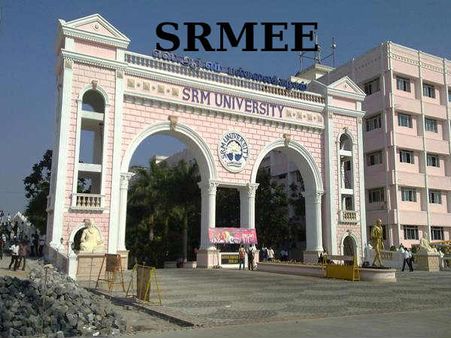
SRMEE (SRM Entrance Examination)
SRM University, Chennai conducts SRMEE for admissions into B.Tech and M.Tech courses.
Exam pattern:
1) Multiple choice questions containing four sections:
2) There is negative marking with 1 mark being deducted for every wrong answer in Physics, Mathematics and Chemistry. 0.7 mark will be deducted for every wrong answer in Biology
Eligibility:
1) For B.Tech: Candidates should have passed 10 + 2 examination in Science stream with 70% of marks from a recognised board of examination.
2) For M.Tech: Candidates should have a Bachelor's degree in relevant discipline with 60% of marks from a recognised university.

NATA (National Aptitude Test in Architecture)
NATA is the qualifying entrance exam for admission to Architecture courses across the country. The Council of Architecture (COA), New Delhi conducts this test.
Exam pattern:
NATA contains two papers.
Eligibility:
Candidate should have passed 10+2 examination in science discipline with 50% of marks from a recognised board of examination.

KEAM (Kerala Engineering Agriculture Medical Degree)
Admissions to Medical / Agriculture / Veterinary / Fisheries / Engineering / Architecture / MBBS & BDS Degree Courses can be obtained by taking up KEAM entrance exam conducted by the Commissioner of Entrance Examinations, Government of Kerala.
Exam pattern:
1) Written test with 2 papers:
2) Duration of the each paper is 150 minutes.
3) The examination will be out of 480, total number of questions is 120.
Eligibility criteria:
1) Candidates must have completed 10+2 from a recognised board or university.
2) A minimum of 50% in Maths and 50% aggregate in Physics and Chemistry must have been obtained by the candidate.
3) Candidates with Engineering Diploma can apply if they have obtained a minimum of 50% in their Diploma exam.
4) Candidates must be 17 or above at the time of taking the exam.

Stay tuned with Oneindia Education on: Entrance Exams, Admissions, News, Value Education, Online Courses



 Click it and Unblock the Notifications
Click it and Unblock the Notifications




























